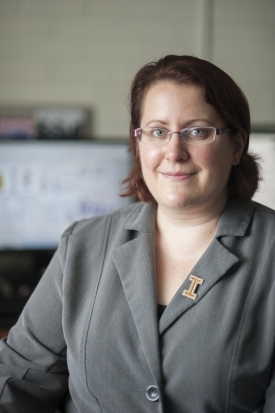Metal Release from Complex Oxides Studied through Compositional Tuning, Theory, and Experiment

Speaker: Sara Mason, University of Iowa
Host: Pratyush Tiwary
Abstract: Nanoscale complex metal oxides have transformed how technology is used worldwide. The most widespread examples are the electroactive components of Li-ion batteries found in portable electronic devices. As the number of portable devices is projected to increase, so too will the inadvertent release of complex metal oxide nanomaterials into the environment. This is a pressing problem because the environmental and biological impact of complex metal oxide nanomaterials are most times unknown, since they are subject to transform rapidly with changes in pH and concentration. This brings us to a looming problem that needs to be solved on a global scale. There is a fundamental knowledge gap in developing sustainable nanotechnology because there is not yet a systematic method to predict how the properties of a complex metal oxide will change with changes in chemical environment. We have developed an approach which combines DFT-computed total energies and tabulated data to compute the energy cation release of complex metal oxides. We focus on the materials found in a Li-ion battery cathode, namely LiCoO2 (LCO) and compositionally tuned variants that go on to include nickel and manganese. We find that adjusting surface terminations, compositions and pH will change the dissolution properties of this family of materials, and ultimately lead to increased favorability of metal release. We generate a new set of materials where we have replaced Ni, Co, and Mn with metals that will keep the same functionality while reducing biological impact. We then predict the thermodynamics of metal release to give insight on tailorable properties that can be used to formulate sustainable design principles for future generations of functional complex metal oxide materials.
Physical Chemistry Seminar Series


